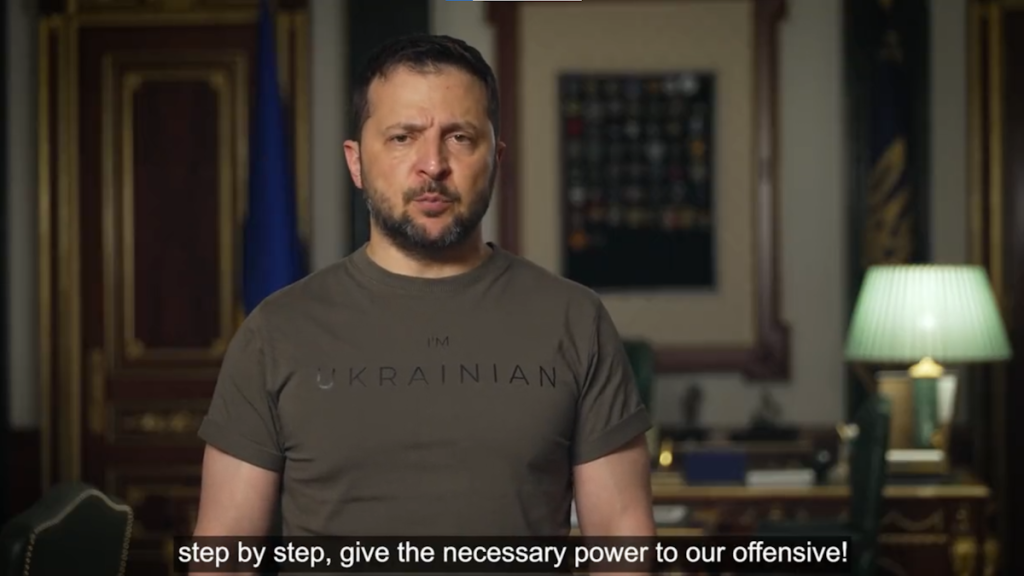No army in the world can win the war merely by defending itself. Even though the Russian military, according to reports, is so far relatively successfully repelling Ukrainian attacks in the southeast of the war-torn nation, to achieve the initial goals of its so-called special military operation, Russia would have to launch another large-scale offensive against the Ukrainian forces. But is Moscow ready for that?
On June 10, Ukraine’s President Volodymyr Zelensky confirmed his country’s long-awaited counter-offensive against Russia. Previously, over the past months, Ukrainian and Western officials have been repeatedly announcing Kiev’s plans to launch a large-scale military campaign against the Russian forces in the Donbass, as well as in the Zaporozhye and Kherson regions. As a result, the Russian military had more than enough time to fortify its positions, and prepare for the Ukrainian attacks.
Unlike in the summer and autumn of 2022, when the Russian Armed Forces were ill prepared – which resulted in Ukraine recapturing significant parts of the Kharkov and Kherson regions – this time the Russian military was not surprised when the Ukrainian forces launched their massive attacks in the southeast of the country. There are several videos of destroyed Western-made infantry vehicles, as well as armored fighting vehicles such as German-made Leopard tanks. Indeed, Ukraine seems to be suffering significant losses in its attempts to make breakthroughs in the defensive lines of the Russian forces.
The Ukrainian military is reportedly using the very same frontal assault suicidal strategy that the Russian army has been using for more than a year. More importantly, the Ukrainian forces seem to be attacking without any air support, which has a significant impact on the outcome of its offensive. If Ukraine had waited for a few more months to get F-16 jets, its military would have been in a far more favorable position. Could it be that the United States, as Kiev’s major backer, has pushed the Eastern European country to launch its counteroffensive too early?
Despite rather modest results on the battlefield, at least in the first days of its counteroffensive, Ukraine appears to be resolute in its ambitions to recapture significant parts of territory that is still under Russia’s control. Unlike Russia, that still faces manpower shortages, Ukraine has already conducted several rounds of mobilization, and has formed a number of “storm brigades”. Thus, if it continues attempting to make a breakthrough in the southeast of the country, sooner or later the Ukrainian Armed Forces could make some tactical gains. The cost will be very high, though.
Russia, on the other hand, has demonstrated that, if there is a political will, it can relatively successfully defend territories it captured in 2022. The Russian army has improved its performances, and has also strengthened its propaganda work by started releasing footages of captured and destroyed Western-made vehicles.
But given that Moscow’s major problem is not its military with deficient planning, equipment and logistics and ill-equipped and inadequately trained troops, but rather its corrupt political leadership, the West will undoubtedly pressure the Kremlin to make more “goodwill gestures”, and to “refrain from further escalating tensions”. The fact that German Chancellor Olaf Scholz said that he plans to soon speak with the Russian President Vladimir Putin, clearly indicates that the Western powers attempt to continue using their “carrot and stick” strategy against Russia.
Thus, even though the Russian army has adapted in several smart ways, the political leadership in the Kremlin remains one of Russia’s weakest points. Moscow reportedly still hopes to reach a deal with Kiev and the West, and eventually freeze the conflict in Ukraine. But US Secretary of State Antony Blinken has clearly said that Washington will not allow Russia to “rest, rearm and re-attack six months later, a year later, or two years later”. In other words, the West is unlikely to make any arrangements with Russia that would recognize its de facto control over the Donbass and southern Ukraine.
Even if Kiev does not manage to make significant gains on the battlefield in the next few months, that does not necessarily mean that the war will come to end, or that the two sides will sign a ceasefire deal. Moreover, even if the Ukrainian counteroffensive proves to be a complete failure, that does not mean that Russia will launch another offensive and capture more territory.
Without another partial, or even a full-scale mobilization, the Kremlin cannot achieve its political and military goals in Ukraine. Therefore, regardless of the outcome of the Ukrainian counteroffensive, the war in the Eastern European country is unlikely to end anytime soon. Although Moscow and Kiev may not formally sign a ceasefire deal, if both armies prove to be too exhausted following the Ukrainian counteroffensive, the conflict will turn into a low-scale positional warfare. Meanwhile, both Russia and Ukraine will start preparing for another round of fighting.
One thing is for sure: the war may not be decided on the battlefield, but the situation on the ground will have a significant impact on political decisions that leaders in Russia, Ukraine and the West will eventually make.
